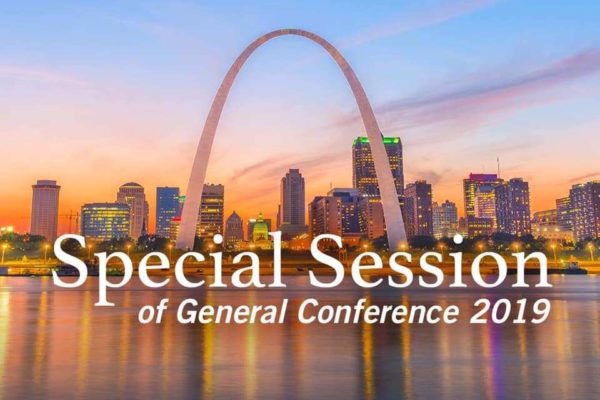Our denomination will make national headlines at the end of February as United Methodists from around the globe gather in St. Louis, Missouri, for a Special General Conference of The United Methodist Church (UMC). Some of you have been closely following the work of the Commission on the Way Forward. Some of you have a general idea of what it’s all about. And others of you reading this are asking, “What’s a Special General Conference? And why does that matter to me?” Regardless of where you are and what you know, my goal in this article is (1) to update you on where we are as a denomination, (2) to make sure you know that I am available at any time for questions, conversations, and emotional processing, and (3) to remind you that our local church is a place of welcome, love, and inclusion and will continue to be that no matter what the outcome of this Special General Conference.
First, a few definitions:
General Conference: The quadrennial meeting of The UMC that includes clergy and laity from each annual conference from around the world. Numbers of delegates are decided much like the House of Representatives (more people = more representatives). The General Conference is the ONLY body of the UMC that can change our polity (Book of Discipline or “church law” in layman’s terms). In essence, they serve as the legislative branch of the UMC.
The Council of Bishops: The name for the gathering of all Bishops of the global UMC. The Council of Bishops will regularly respond to national and global issues. Specifically, the General Conference of 2016 asked the Council to lead the church when the General Conference came to a stalemate on votes relating to inclusion of our LGBTQ+ brothers and sisters. As a body, the Bishops do not hold power to make legislative decisions that relate to the UMC, but they can make recommendations when asked to do so.
Annual Conference: The body and annual meeting of churches in a particular state/region. Our Annual Conference is The North Alabama Conference. If you imagine a map of the state, our Conference’s southern boundary cuts across the center of the state from Tuscaloosa County to Shelby County to Tallapoosa and Chambers Counties. The rest of the conference is defined by northern, eastern, and western state lines.
Our Annual Conference meets each June and decides polity and responses to issues that specifically relate to missions and ministry within our Conference.
The Commission on the Way Forward: The group of 32 people, commissioned by the Council of Bishops (including two bishops, clergy, and laity from around the world) who was charged with creating options for how The UMC might move forward on issues that relate to human sexuality … in particular inclusion, marriage, and ordination of our LGBTQ+ brothers and sisters. The commission met at various times since the 2016 General Conference, and last summer they made recommendations to the Council of Bishops of three plans for moving forward.
After reviewing the options, the Council of Bishops has recommended what’s being called the “One Church Plan.” In essence, the “One Church Plan” would delete the exclusive language currently in the Book of Discipline and allow each local church to make its own decision about how it will respond to LGBTQ+ congregants and requests for marriage. So, Church A might openly advertise that LGBTQ+ folks are welcome and allow for same sex marriages to take place in its sanctuary. Church B might not say anything one way or the other. And Church C might be public in its stance that it does not support same sex relationships.
Ultimately, the One Church Plan is only a recommendation to the General Conference from the Council of Bishops. Other plans and legislation have been proposed from other caucuses and groups, and they will be allowed for debate. It will be the General Conference who will ultimately decide over several days which, if any, of these recommendations they will adopt as church law. Any decisions made will ultimately affect our shared life within the denomination.
What does all of this mean for us as a local church here in Avondale? For many it is as significant as it is deeply personal, and we have much invested in the outcome of these votes. For others, it will be business as usual – you’re here because you’ve been welcomed and found a place where God is feeding you in worship and mission.
For today, I would encourage you to pray (1) for our local church as we seek God’s will to be in ministry to all persons and reflect the love of God in how we live our faith, (2) for our denomination as we seek to move forward on an issue that has divided us for many decades, (3) and for our delegates who have the difficult task before them of living faithfully in making a decision that will impact the global United Methodist Church.
Humbly yours,
Rev. Malinda Weaver


